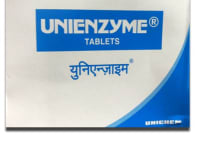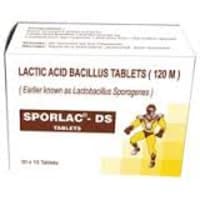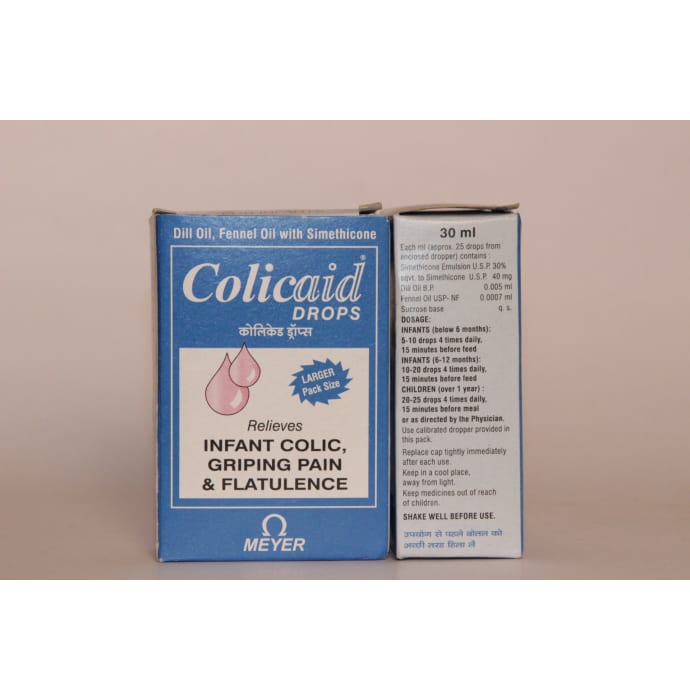
Interaction with alcohol is unknown. Please consult your doctor.

WEIGH RISKS VS BENEFITS
Galdom Suspension may be unsafe to use during pregnancy.Animal studies have shown adverse effects on the foetus, however, there are limited human studies. The benefits from use in pregnant women may be acceptable despite the risk. Please consult your doctor.

SAFE
Galdom Suspension is safe to use during lactation. Human studies have shown that either the drug does not pass into the breastmilk in significant amount or is not expected to cause toxicity to the baby.

Galdom Suspension may make you feel dizzy, sleepy, tired, or decrease alertness. If this happens, do not drive.

CAUTION
Galdom Suspension should be used with caution in patients with kidney disease. Dose adjustment of Galdom Suspension may be needed. Please consult your doctor.

CAUTION
Galdom Suspension should be used with caution in patients with liver disease. Dose adjustment of Galdom Suspension may be needed. Please consult your doctor.Use of Galdom Suspension is not recommended in patients with moderate and severe liver disease.
Uses of Phenylpropanolamine
Phenylpropanolamine is used in the treatment of allergic disorders.
Uses of Galdom Suspension
Galdom Suspension is used in the treatment of nausea and vomiting.
How to use Phenylpropanolamine
Take this medicine in the dose and duration as advised by your doctor. Check the label for directions before use. Measure it with a marked dropper and take it as directed. Triaminic Drop may be taken with or without food, but it is better to take it at a fixed time.Avoid Triaminic Drop with caffeine and chocolate as well as food containing caffeine and chocolate such as tea leaves, cocoa beans.
How to use Galdom Suspension
Take this medicine in the dose and duration as advised by your doctor. Check the label for directions before use. Measure it with a measuring cup and take it by mouth. Shake well before use. Galdom Suspension is to be taken empty stomach.
How Triaminic Drop works
Phenylpropanolamine belongs to a class of medications called nasal decongestants. It stimulates receptors on blood vessels in the nose and sinuses leading to its constriction and reduction in blood flow thereby relieving congestion..
How Galdom Suspension works
Galdom Suspension indirectly stimulates the release of acetylcholine, a chemical messenger that can increase the motility of the intestine.
Common Systemic hypertension (high blood pressure), Nausea, Insomnia (difficulty in sleeping), Palpitations.
Common Dryness in mouth.
Expert advice for Phenylpropanolamine
Do not continue phenylpropanolamine for more than 7 days if your condition does not improve or if you have high fever.
Tell your doctor if you have high blood pressure, heart problems, liver or kidney disease, diabetes, prostate enlargement or visual problems due to increased pressure in the eyes (glaucoma).
Seek immediate medical attention and discontinue medication if you experience difficulty in breathing, sudden swelling or skin reactions, fits, rapid heartbeat or hallucinations.
Use with caution if you are a woman or an elderly patient. Woman may be at a higher risk of haemorrhagic stroke (bleeding in the brain).
Avoid driving or operating machinery if you feel dizzy or drowsy after taking phenylpropanolamine.
Tell your doctor if you are or planning to become pregnant or are breastfeeding.
Do not take if allergic to phenylpropanolamine or any of its ingredients.
Expert advice for Galdom Suspension
Do not take Domperidone, if you are allergic to it or to any other content in the tablets.
Do not take the medicine, if you notice black, tarry stools (bowel motions) or blood in your stools, blockage or tear in the intestines or if you have a tumor of the pituitary gland (prolactinoma).
Do not take the drug, if you have moderate to severe liver disease, heart problems (irregular heart rate or heart failure) or abnormal salt levels in the blood.
Do not crush or chew the tablets, swallow them whole with a glass of water.
Do not take the drug if you intend to drive or operate heavy machinery as it may cause drowsiness.
Always take the tablets 15 to 30 minutes before meals and, if needed, before going to bed at night.
Consult your doctor, if you are above 60 years of age and taking domperidone for a long period of time.
Inform your doctor, if you are already taking medicines for fungal infections (ketoconazole) or antibiotics (e.g. gentamycin, erythromycin).
Q. Is phenylpropanolamine the same as phenylephrine?
Phenylpropanolamine and phenylephrine are different drugs belonging to the same class of medications (nasal decongestants). Both are used to relieve blocked nose or sinuses caused by common cold and seasonal nasal allergies (hay fever)
Q. Does Phenylpropanolamine cause stroke?
Phenylpropanolamine has shown to increase the risk of hemorrhagic stroke (bleeding in the brain). Women are at a higher risk.
Q. Is Phenylpropanolamine a controlled substance?
Phenylpropanolamine is a controlled substance since it can be used for manufacturing of illegal drugs
Q. Is Phenylpropanolamine still on the market?
Phenylpropanolamine is banned in India due to increased risk of haemorrhagic stroke (bleeding in the brain) and is no longer marketed in India
Q. What is Galdom used for?
Galdom is used for the treatment of nausea (feeling sick) and vomiting as and when recommended by your doctor.
Q. Is Galdom an over the counter drug?
Galdom is not an over the counter (OTC) medicine and it is not advisable to take it without a prescription.
Q. Does Galdom cause weight gain?
Weight gain has not been reported with the use of Galdom. If you notice any abnormal weight gain while using Galdom, please talk to your doctor.
Q. Does Galdom raise the blood pressure?
The increase in blood pressure is generally not seen with the use of Galdom. But if you experience an increase in blood pressure while using Galdom, please consult your doctor.
Q. Can I take Galdom for morning sickness?
Galdom is not indicated or recommended for treating morning sickness. Please consult your doctor if you plan to take any medicine for treating morning sickness.
Q. Can I take Galdom with antibiotics?
The use of Galdom with antibiotics like erythromycin, levofloxacin, moxifloxacin, spiramycin, and some antifungals is not recommended. Please consult your doctor before using any antibiotics with Galdom.
Q. Can I take Galdom with lansoprazole?
Yes, Galdom can be taken with lansoprazole as no drug-drug interactions have been clinically seen when they are taken together. However, interactions may occur. Please consult your doctor before using the two medicines together.
Q. Can I take Galdom with doxycycline?
Yes, Galdom can be taken with doxycycline. No drug--drug interactions have been reported. However, please consult your doctor before taking Galdom with doxycycline.
Q. Can I take Galdom with omeprazole?
Yes, Galdom can be taken with omeprazole. No drug--drug interactions have been reported. However, interactions may occur. Please consult your doctor before using the two medicines together.
Q. Can I take Galdom with citalopram?
The use of Galdom with citalopram is not recommended as it may increase the underlying heart problems like prolonged QTc interval. Please consult your doctor before taking the two medicines together.
Q. Can I take Galdom with amitriptyline?
Yes, Galdom can be taken with amitriptyline. No drug--drug interactions have been reported. However, please consult your doctor before taking Galdom with amitriptyline.
Q. Can I take Galdom with amoxicillin?
Yes, Galdom can be taken with amoxicillin. No drug-drug interactions have been reported. However, please consult your doctor before taking Galdom with amoxicillin.
Q. Can I take Galdom with paracetamol?
Yes, Galdom can be taken with paracetamol. No drug--drug interactions have been reported. However, interactions may occur. Please consult your doctor.
Q. Can I take Galdom with tramadol?
Yes, Galdom can be taken with tramadol as no drug--drug interactions have been reported. However, please consult your doctor before taking Galdom with tramadol.
Q. Is Galdom safe?
Yes. Galdom is safe if used at prescribed doses for the prescribed duration as advised by the physician/ doctor.
Q. Is Galdom used for motion sickness?
Galdom is indicated for use in motion sickness. Please consult your doctor before using Galdom for motion sickness as it must be used in the dose and duration as advised by your doctor.
Q. Is Galdom an antibiotic?
No, Galdom is not an antibiotic. Galdom is an anti-emetic which is used to treat nausea (feeling sick) and vomiting (being sick).
Q. Does Galdom cause drowsiness?
Drowsiness has been reported as one of the rare side effects with Galdom. Please talk to your doctor if you experience excessive drowsiness while taking Galdom.
Q. Does Galdom increase milk secretion?
Yes, Galdom can increase milk secretion also known as galactorrhea. This is an uncommon side effect of Galdom. Talk to your doctor if you are experiencing this side effect while taking this medicine.
Q. Does Galdom cause bloating (gas)?
Galdom can cause some uncommon gastrointestinal side effects like regurgitation, appetite disorder, and heartburn, diarrhoea. However, bloating (gas) has not been reported as a side effect with Galdom.
Q. Does Galdom cause hair loss?
Galdom has not been reported to cause hair loss. Please consult your doctor in case you experience excessive hair loss while taking Galdom.
Q. Does Galdom help to treat constipation?
Galdom is not indicated to treat constipation. Please talk to your doctor regarding its use.
Q. Does Galdom cause heart problems?
Galdom may be associated with an increased risk of heartbeat problem and heart attack. This risk may be more likely in those over 60 years old or taking higher doses. The risk also increases when Galdom is given together with other medicines. Please share your medical history with your doctor if you are prescribed Galdom.
Q. Does Galdom cause constipation?
Yes, Galdom has been seen to cause constipation as a side effect.Consult your doctor if you experience excessive constipation while using Galdom.
Q. Does Galdom help to relieve bloating (gas)?
Galdom is an anti-emetic which is used to treat nausea (feeling sick) and vomiting (being sick). It is not indicated to treat bloating (gas). Please consult your doctor before using this medicine.
Q. Can I take Galdom with rabeprazole?
Galdom can be safely taken with Rabeprazole as no harmful effects have been reported clinically. A fixed-dose combination of these two medicines is also available. Galdom increases gut motility and Rabeprazole decreases the acid production in the stomach. So, this combination is very effective in the treatment of reflux esophagitis associated with acidity, heartburn, intestinal and stomach ulcers.


 Galdom Suspension
Galdom Suspension  Bookmark
Bookmark





















